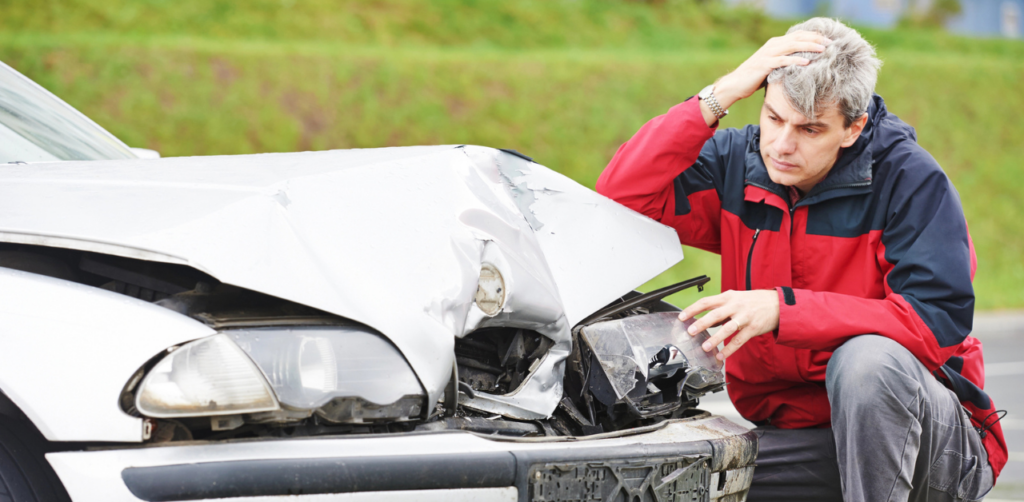When a truck driver has an accident, it can lead to a complex and stressful situation. The immediate aftermath involves dealing with personal injuries and property damage and determining fault. The injured party often faces medical bills and lost wages, while the at-fault driver must navigate insurance claims and potential lawsuits. Both parties may need to interact with insurance companies, police officers, and legal counsel to manage the legal and financial consequences.
In this article, we will explain what happens when a truck driver has an accident, including how to handle personal injury claims, the role of insurance companies, understanding Nevada’s car accident laws, and the importance of legal representation in pursuing compensation for damages.
Understanding the Legal Process of a Car Accident Lawsuit
Understanding the legal process of a car accident lawsuit can be easier when broken down into manageable steps. The lawsuit process typically involves five main stages:
- Filing a complaint
- The defendant’s response
- The discovery phase
- The trial
- Potentially an appeal
Each stage requires careful preparation and strategy. Legal counsel often guides the process. The initial response to a lawsuit is particularly important, as a delayed or inadequate response can lead to a default judgment against you.
It is also key to understand the role of negligence and how it is established in Nevada law. Nevada operates under a modified comparative negligence rule, meaning you can recover damages if you are not more than 50% at fault. This makes fault determination a critical component of your defense. Additionally, timely action is essential, as failing to adhere to court deadlines can result in losing certain rights and legal options.
Responding to the Summons and Complaint
When you are served with a lawsuit, the first legal document you will receive is the summons. This document notifies you of the lawsuit and requires you to respond within a specified time frame. Accompanying the summons is the complaint, which details the plaintiff’s allegations and the damages they seek. Your response to this complaint must address each allegation by either admitting, denying, or stating that you lack sufficient information to accept or deny the claim.
The significance of a prompt and well-structured response cannot be emphasized enough. Failing to respond adequately can inadvertently harm your case, potentially leading to a default judgment. It’s advisable to consult an experienced attorney who can help you craft a compelling case and ensure that all legal requirements are met.
Role of Negligence in Car Accident Lawsuits
Proving negligence is a cornerstone of any car accident lawsuit. In Nevada, you must show that the defendant’s actions directly caused the accident and damages. This state follows a modified comparative negligence rule, which means that you can recover damages if you are not more than 50% at fault for the accident. It becomes imperative to accumulate evidence that clearly demonstrates the other party’s negligence.
Nevada is not a no-fault state, so determining fault is essential for liability and insurance coverage in a Nevada car accident. This means that if you are found to be the at-fault driver, you could be held financially liable for the other party’s damages. Working with a car accident attorney who understands Nevada auto accident laws can help you build a strong defense.
Initial Steps After Being Sued
As soon as you learn of a lawsuit due to a car accident, taking prompt action is essential. This helps protect your legal rights and sets the stage for a more organized and effective defense. The first steps include contacting your insurance company and finding legal representation. Both actions are key to ensuring you are prepared to handle the lawsuit process.
Usually, your insurance company will provide a defense attorney and cover defense costs within your policy limits. This can help reduce financial burdens when facing legal challenges. However, it’s also wise to consider hiring a non-insurance defense lawyer to protect your interests. These initial measures are important and can significantly shape the trajectory of your car accident lawsuit.
Contacting Your Insurance Company
Informing your insurance company immediately after receiving a lawsuit is a crucial initial step. Often, your insurer will supply a defense attorney and pay for your defense expenses within policy limits. To fulfill your duty to cooperate, call your insurance adjuster right away and provide them with a copy of the lawsuit. This prompt action ensures your insurance company can start the claims process and provide you with the necessary legal representation.
It’s also essential to confirm your insurance liability policy limits with your adjuster. Knowing your coverage limits helps you understand the extent of your financial protection and plan accordingly for any potential out-of-pocket expenses.
Finding the Right Legal Representation
While your insurance company will appoint a defense attorney, hiring an additional, independent lawyer is often beneficial. An experienced attorney specializing in car accident lawsuits can safeguard your legal rights and strive to secure the compensation you deserve. Many reputable attorneys offer a free consultation and work on a contingency basis, meaning you only pay if you win your case.
Selecting the right legal representation can significantly affect the outcome of your case. A non-insurance defense lawyer can prioritize your interests rather than the insurance company’s, providing a more focused and personalized defense.
Building Your Defense

After securing legal representation, the next step is to build a strong defense. This involves gathering extensive evidence, such as eyewitness testimonies, photographs, and medical records, to support your version of events. Determining fault is key, and your attorney will use various strategies, such as questioning liability and advocating comparative fault.
Communication with the plaintiff’s attorney should be managed professionally and typically through your legal counsel to avoid unintentionally harming your case. An experienced attorney will handle these interactions, ensuring all communication remains factual and professional.
Gathering Evidence
Collecting extensive evidence is essential for building a solid defense. Key pieces of evidence to gather include:
- Eyewitness testimonies: These provide proof of how the accident occurred and support your version of events.
- Photographs of the accident scene: These should include vehicle placement, weather conditions, and any road defects.
- Medical records: These document your injuries and substantiate your claims.
In some cases, your attorney may use specialists, such as accident reconstruction experts and biomechanical engineers, to provide expert evidence and establish liability. Gathering such comprehensive evidence can significantly strengthen your defense and improve your chances of a favorable outcome.
Settlement Negotiations
Many car accident lawsuits settle out of court to avoid the lengthy and expensive trial process. Settlement negotiations involve exchanging offers between your attorney and the plaintiff’s attorney until an agreement is reached. Settling can save time and money, but it’s important to understand the implications, including any financial obligations you may incur.
During these discussions, your attorney will strive to achieve a settlement that covers all your damages and future costs. Understanding the benefits and drawbacks of settling can help you decide whether to accept a settlement offer or proceed to trial.
Pros and Cons of Settling
Settling out of court offers several advantages, including:
- Faster resolution
- Less stress compared to going to trial
- The ability to recover damages even if you are partially at fault (Nevada’s comparative negligence standard)
However, one downside is that you may receive less compensation than you might through a court verdict. Accepting a settlement also waives your right to any future claims related to the accident. In cases of shared fault, settlement amounts can be adjusted based on the percentage of liability assigned to each party. Weighing these pros and cons can help you decide the best course of action.
How to Approach Settlement Discussions
Entering settlement discussions with a clear understanding of your financial requirements and the settlement’s implications is essential. Here are some steps to follow:
- Ask the insurance adjuster what amount they have offered to settle your case and stay updated on the process.
- If the initial offer is low, request a written justification from the insurance company.
- Consider their comments before making a counteroffer.
Effective negotiation requires:
- Having a minimum and maximum payment range in mind
- Avoiding sharing this range with the insurance company
- Focusing on reaching an amount that covers all damages and future expenses
- Ensuring that the settlement is fair and comprehensive
Potential Outcomes of a Car Accident Lawsuit

The outcome of a car accident lawsuit can vary significantly, but it usually includes compensatory damages to cover the plaintiff’s losses. These damages can be categorized as:
- Economic damages, such as medical expenses and lost income.
- Non-economic damages, such as pain and suffering.
Understanding the types of damages claimed can help you assess the impact of financial lawsuits.
Additionally, being held liable in a car accident lawsuit can affect your insurance premiums. An insurance company may raise your rates to offset the increased risk of car accidents. The severity of the accident and the claim amount can influence how much your premiums increase.
Financial Compensation and Damages
Compensatory damages in a car accident lawsuit cover both economic and non-economic losses related to personal injury claims. Economic damages include tangible costs such as medical bills, lost wages, and property damage, which can cover doctor visits, surgeries, and therapy expenses. Non-economic damages account for intangible impacts like pain, suffering, and loss of quality of life.
Understanding the categories of damages you can claim is important because it affects the potential financial impact of the lawsuit. This knowledge can help you and your attorney to build a more targeted and effective case.
Impact on Insurance Premiums
If you are found liable in a car accident lawsuit, your auto insurance premiums may increase. Insurance companies might raise rates based on the accident’s severity and the claim amount to offset the perceived increased risk associated with your driving record.
It’s essential to discuss these potential increases with your insurance adjuster and understand how they might affect your future insurance costs. Knowing this can help you plan financially and make informed decisions throughout the lawsuit process.
Statute of Limitations
In Nevada, you have two years from the accident date to file a car accident claim, according to the statute of limitations. This deadline is crucial; failing to file within this period may result in losing the right to pursue compensation. Adhering to this deadline is essential to prevent your case from being dismissed.
There are exceptions to this rule, so consulting an experienced attorney is important for advice tailored to your situation. They can help you understand any exceptions that may apply and ensure you meet all necessary deadlines. Taking timely action helps preserve your legal rights and allows for the collection of fresher evidence and more reliable witness testimonies.
Contact an Experienced Car Accident Attorney to Handle a Car Accident Lawsuit
Handling a car accident lawsuit can be overwhelming, but understanding each step can make the process easier. From responding to the summons and complaint to gathering evidence and negotiating settlements, every action affects your case’s outcome. In addition, engaging promptly with your car insurance company and securing the right legal representation are essential steps for a strong defense.
By understanding the potential financial outcomes and Nevada’s car accident laws, you are better prepared to face the challenges. Timely and informed actions help secure a favorable result. Stay proactive, consult with experienced attorneys, and keep communication open with your legal counsel to handle this process effectively.
For those dealing with a car accident case in Las Vegas, consider Temple Injury Law, a car accident lawyer. Schedule a consultation to get the help you need.

Jeff Temple focuses his practice in the area of personal injury. As a skilled personal injury attorney, he handles a broad range of cases including motor vehicle accidents, premises liability, and wrongful death. He is a graduate of the Radford University, he later attended the University of Miami School of Law and studied abroad at University College London. Upon graduating, Jeff relocated to Las Vegas and founded Temple Injury Law in 2022.

